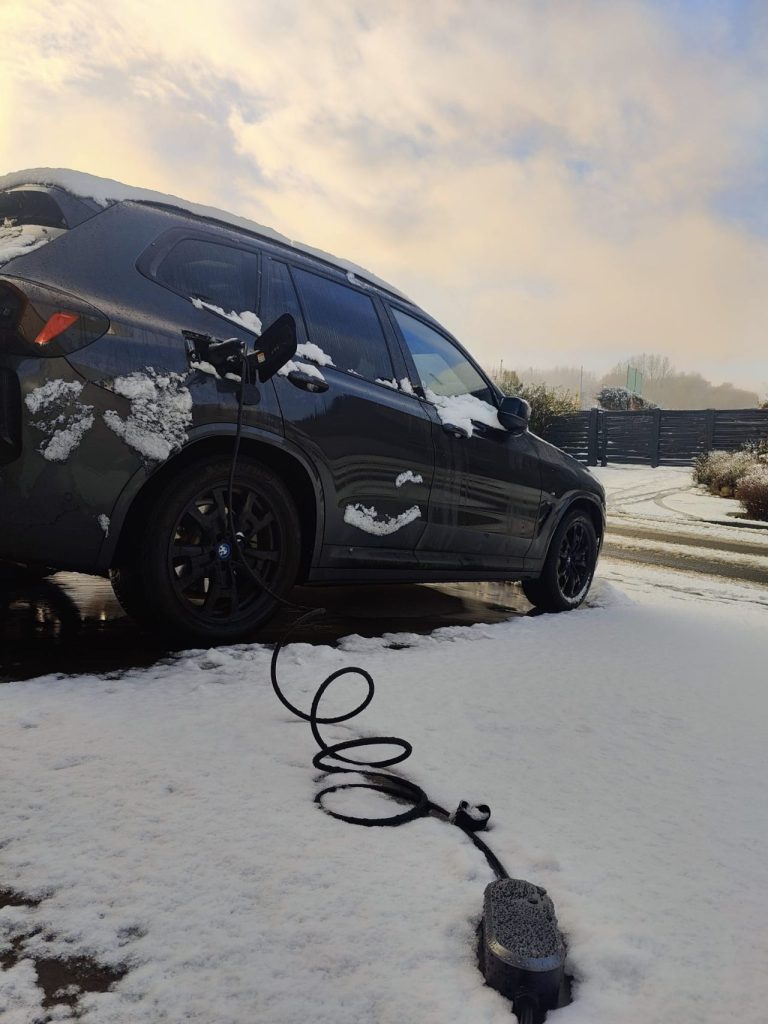
Safe Home Charging for Your Electric Vehicle: Why a Smart Charging Cable Is the Best Choice 🔌
With the rapid rise of electric vehicles (EVs), home charging has become increasingly popular.
Many EV owners charge their vehicles using a standard household socket, but this raises concerns about safety. Is it safe to charge your car this way? The answer is yes—provided you use the right tools, such as a safe and smart charging cable.
What Makes Charging via a Household Socket Risky?
A standard socket is designed for household appliances, not for prolonged heavy usage like charging an electric car. Extended and intensive power use can lead to:
- Overheating: An overloaded socket can become dangerously hot.
- Power Surges: Fluctuations in the power grid can damage both your socket and your vehicle.
- Improper Installation: Older or poorly connected sockets may not be safe for high-demand applications like EV charging.
The Role of a Smart Charging Cable
A smart charging cable is specifically designed to minimize these risks. It transforms your household socket into a safe and efficient charging solution. But how does it work?
1. Safety Features
- Temperature Monitoring: The cable continuously measures the socket’s temperature and automatically shuts off if overheating is detected.
- Current Protection: Protection against power surges and short circuits ensures the safety of both your vehicle and electrical system.
2. User-Friendliness
In most of the cases you can monitor and manage charging sessions via a local web app or via the Open Charge Point Protocol (OCPP) trough a Charge Point Management System (CPMS), giving you precise insights into energy consumption.
Is Charging with a Smart Cable Truly Safe?
Yes! A smart charging cable complies with strict safety standards and is specifically developed to make charging via a standard socket both safer and more efficient. It offers the same reliability as a fixed charging station but with greater flexibility for on-the-go use and significantly lower installation costs.
Benefits of Home Charging with a Smart Cable
- Lower Costs: No need for an expensive charging station installation.
- Flexibility: A smart charging cable is portable and can be used at other locations.
- Safety: Advanced technologies and built-in safety features minimize the risk of damage or accidents.
- Accessibility: Anyone with a standard socket can safely charge an EV without major modifications to their electrical system.
FAQs About Charging via a Socket
- Can any socket be used?
It’s recommended to use a well-maintained, grounded, and preferably newer socket. If you’re unsure about your electrical installation’s quality, consult an electrician. - How long does it take to charge my EV?
Charging via a household socket is slower than with a charging station, typically at 8-10 amps. This adds about 10 km of range per hour of charging.- Example: 10 hours of charging at 10A adds approximately 100 km of range.
Conclusion
Charging your EV via a household socket is safe as long as you use a smart charging cable and a properly installed (certified) socket. This innovative tool strikes the perfect balance between convenience, cost savings, and safety.
Switch to a smart charging cable today and experience how simple and safe home charging can be.
Both your car and your electrical system will thank you!
